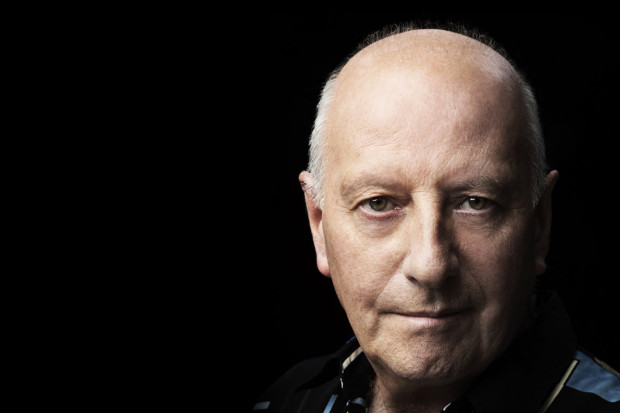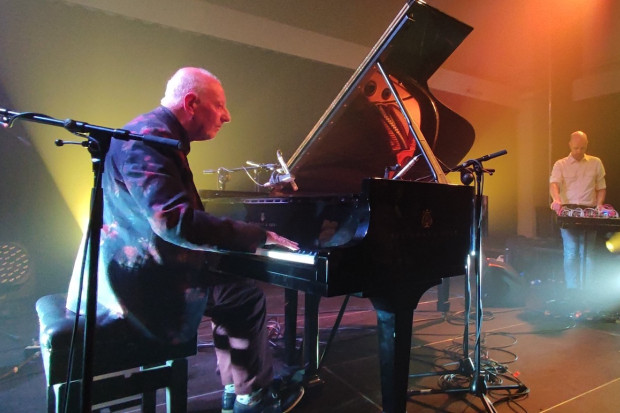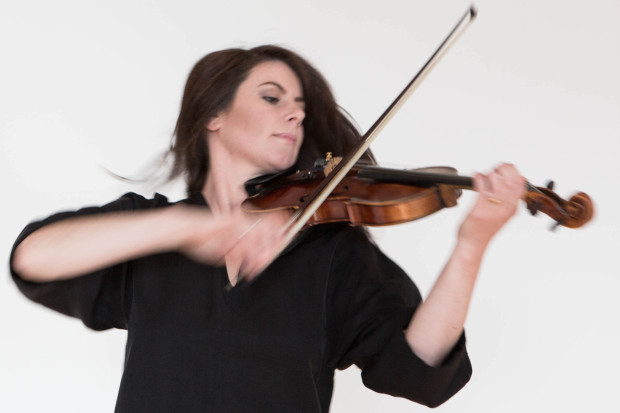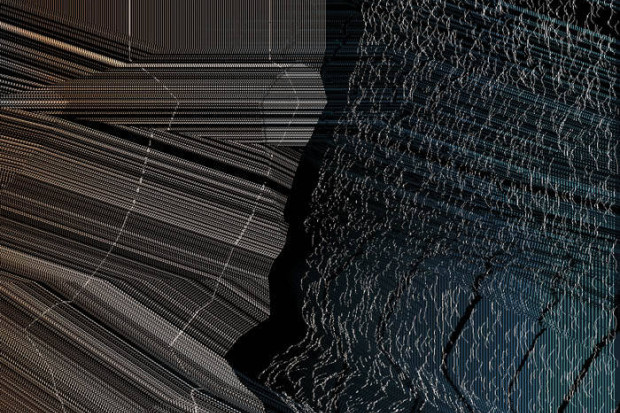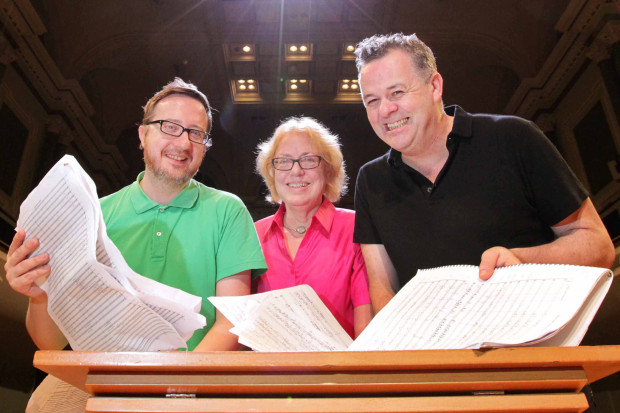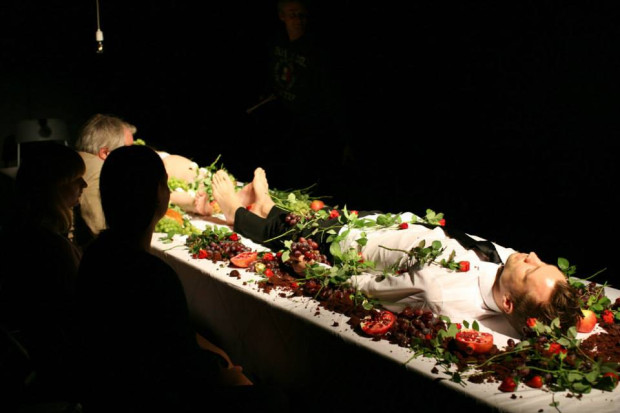
Roger Doyle
Female Grief, Sorrow and Sacrifice
There is something rather dazzling about the way Roger Doyle continues to defy categorisation with work that steadfastly, even stubbornly, refuses easy description and demands to be considered on its own terms.
Recorded remotely and completed during the most recent of Covid-enforced lockdowns, Doyle’s latest offering, iGIRL, is his second ‘electronic opera’ following 2018’s Heresy, a portrait of the 16th-century heretic priest, poet and philosopher Giordano Bruno.
Here, with a libretto by playwright Marina Carr, the subject is just as esoteric, exploring, in Doyle’s words, ‘female grief, sorrow and sacrifice [that] offers an insight into themes highly relevant in contemporary society’.
Carr’s collage is inhabited by figures from legend and history – Antigone, Oedipus, Jocasta, Joan of Arc – a roll call that points to the central pre-occupations of her striated text. They feature alongside two multi-voiced narrators: one, male, commenting on the deadly Darwinian competition between Neanderthals and Homo sapiens; the other, female, providing a contemporary perspective on sorry ancient tropes.
The pointedly prosaic ‘I Antigone / Stubborn girl / My uncle said / I’ll knock the stuffing / Out of you / Teach you manners / If it’s the last thing I do’, and ‘It is not easy / Being the sister / Of your Father / Or know your / Mother made the Hump-backed beast / With her son / Your brother / Your father’ serve as illustrations of Carr’s concern for bending contemporary vernacular to antique precedents to illustrate how little has changed in so long a time.
It’s the historical figures, providing loosely sketched narrative (though that rather overstates their function), punctuating Carr’s poetically un-poetic meditation on the gender-imbalanced slant of history that, in the absence of any discernible plot, most hit home, the somewhat elusive text more an exercise in (often bitingly caustic) commentary than clarity.
To such eclecticism Doyle responds with a score that courts a stylistic complexity that even Charles Ives might have balked at. Serving as both a primal echo conjuring ancient drumming rituals and a discordantly contemporary pulse, the thunderous gravity of stentorian industrial techno provides the underpinning for Doyle’s characteristically variegated sonic palette.
Ideas crowd in
For all the ambitious sweep of his 150-minute scale, it’s Doyle’s attention to detail, even as ideas crowd in, one on top of the other, that compels. So, too, contrarily, his capacity for accommodating accents heard subliminally in the ether and subsequently corralled into service. There is something of Lewis Carroll’s topsy-turvy grasp of reality in his facility for creating surfaces whose fluidity disguises their deep-rooted anchors.
The fitful delirium of ‘What’s Happiness?’, filtered through vocal idiosyncrasies reminiscent of Stina Nordenstam and, glancingly, of Peking opera, provides evidence of that. As does the hallucinatory through-the-looking-glass Overture with its surge of scorching sonic energy.
There’s a narcotic quality, too, to ‘How You’ll Weep at the Stake’, which bleeds from chill-out intimacy to unsettling come-down before giving way to the return to brute consciousness of ‘At the Grove of the Furies’.
It’s a score that never settles, or only ever briefly, Doyle’s programming carrying the full force of his auteur-like impulses. He is well-served by an ensemble of ‘hand-picked non-traditional opera voices’, despite the obvious technical challenges (a quality that also confronts listeners). Led by Morgan Crowley (Giordano Bruno in Doyle’s Heresy recording), there are memorable contributions from Caitríona O’Leary (Heresy’s Circe), Bláthnaid Conroy Murphy and long-time collaborator, Olwen Fouréré.
Fouréré, incidentally, will be seen in a solo staging of iGIRL with a text substantially re-worked by Carr and a score, curiously not Doyle’s but by Carl Kennedy, at the Abbey Theatre in October.
iGIRL is not the most immediately explicable listening experience. But it is immediately if cryptically communicative, and repeated exposure reveals one of Doyle’s most sophisticated scores laid down in stratified layers of kaleidoscopic sound with artisanal dexterity and precision. The result shows him still able to surprise, still growing, and still setting the pace.
To purchase iGirl on on Bandcamp, visit https://rogerdoyle1.bandcamp.com/
Published on 30 September 2021
Michael Quinn is a freelance music and theatre journalist based in Co. Down.












